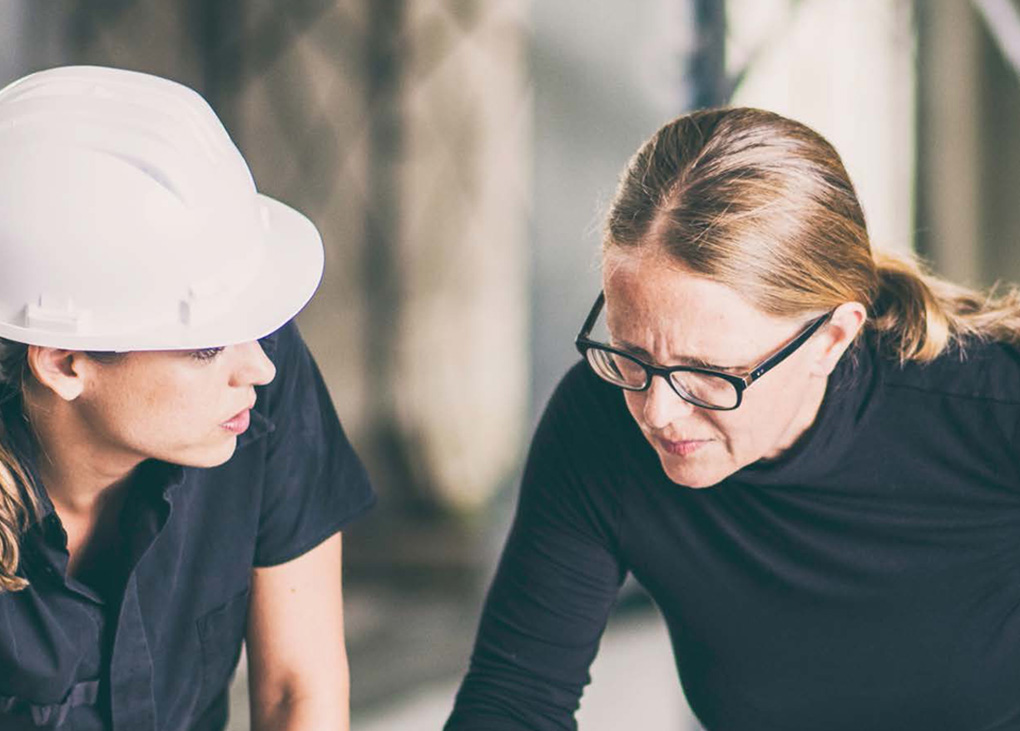The Australian Sustainable Built Environment Council (ASBEC) has released the results from its Women in Construction Future Leaders Pilot scoping study.
With assistance from the NSW government’s Women in Construction Industry Innovation Program (IIP) grant, ASBEC launched the pilot to create lasting change in the industry and promote gender diversity. It is also a part of ASBEC’s Equal by 30 campaign pledge – a commitment to taking concrete actions to accelerate the participation of women in the clean energy sector and close the gender gap.
ASBEC Executive Director Alison Scotland says increasing leadership and participation of women in Australia’s construction sector is fundamental to the clean energy economy transition.
Led by Global IQ Group CEO Liza Taylor, M.AIRAH, the scoping study sought to gauge the current rate of female participation in ASBEC member organisations, the key challenges facing retention, and barriers to females reaching leadership positions.
More than 130 women completed the survey, with a broad variety of age groups and experience across the residential, commercial, industrial and infrastructure construction industry.
The survey delved into questions about the individuals, their workplaces, and what kinds of programs they participate in.
Taylor says the good news is that 80 per cent of respondents love working in the construction industry.
“The ability to create impact and see the tangible results of their work; the transferrable skills that can be gained – the construction industry can provide a wealth of opportunity and a rewarding career,” she says.
There was also a positive response on what the construction industry offers in terms of career rewards, including the ability to make a meaningful impact, gaining transferrable skills and the opportunities for growth.
And overall, women were satisfied with their workplaces – including their work relationships, company culture and working conditions.
However, Taylor says there are also serious issues in the industry.
“From a male-dominated culture to experiences of sexual harassment, I was shocked that this still happens in many workplaces and buildings sites around the country in 2023,” she says.
The negative responses were categorised into five main themes:
- A predominantly male-dominated culture
- Sub-par working conditions
- Gender-based wage disparities
- Limited leadership opportunities
- Instances of bullying and sexual harassment.
Problem areas included the lack of opportunities for career progression or leadership opportunities. Respondents also exhibited dissatisfaction with achieving a healthy work-life balance, access to professional development and compensation or salary packages.
According to the report, “less than half the leaders are actively ‘walking the talk’” – one in five workplaces do not align their actions with their diversity, equity and inclusion values.
“The good news is 55 per cent of workplaces actively encourage women to take on leadership opportunities,” Taylor says. “And while many organisations have made great inroads with diversity, equity and inclusion programs, less than half of leaders are taking actions that demonstrate a commitment to gender diversity and inclusion.”
The report revealed that while there is a large variety of professional development opportunities and events for women to attend, there needs to be a bigger focus on leadership development and executive coaching.
“Most workplaces are supporting professional development, but women are not taking up these opportunities,” Taylor explains. “Some reasons include lack of awareness, lack of time, and work-life pressures.”
As one of the survey respondents noted: “we need to have more targeted training for women in leadership and strategies on how to retain female engineers in the industry, especially after they have kids.”
Based on the findings and insights from the survey, the ASBEC Women in Construction Future Leaders Pilot Program will now focus on the following areas:
- Leadership development – ASBEC will offer a peer mentoring network using the MasterMind approach, which focuses on building high-quality connections
- Building meaningful connections – developing networks for women that will help them progress their careers and build a culture of inclusion
- Executive coaching – offer formal executive coaching/formal mentoring
- Bringing workplaces on the journey – get participants’ workplaces involved in the program
- Leveraging ASBEC members as role models and champions for change.
The Future Leaders Pilot Program will offer a four-month initiative tailored to empower and enhance the leadership capabilities of Women in Construction, facilitating their journey toward personal and professional success.
Taylor says the 24 women selected for the program will gain leadership development, accelerated growth through one-on-one executive coaching, and meaningful connections through a cohort experience.
“In many workplaces, women can feel isolated in their own jobs,” she says. “The program helps to build networks across the industry.”
The deadline for applications has been extended until Friday, November 24 and is open here. The first round of participants in the program will be announced on November 30.
The full report is available to read here.
Feature image courtesy of ASBEC.



Leave a Reply